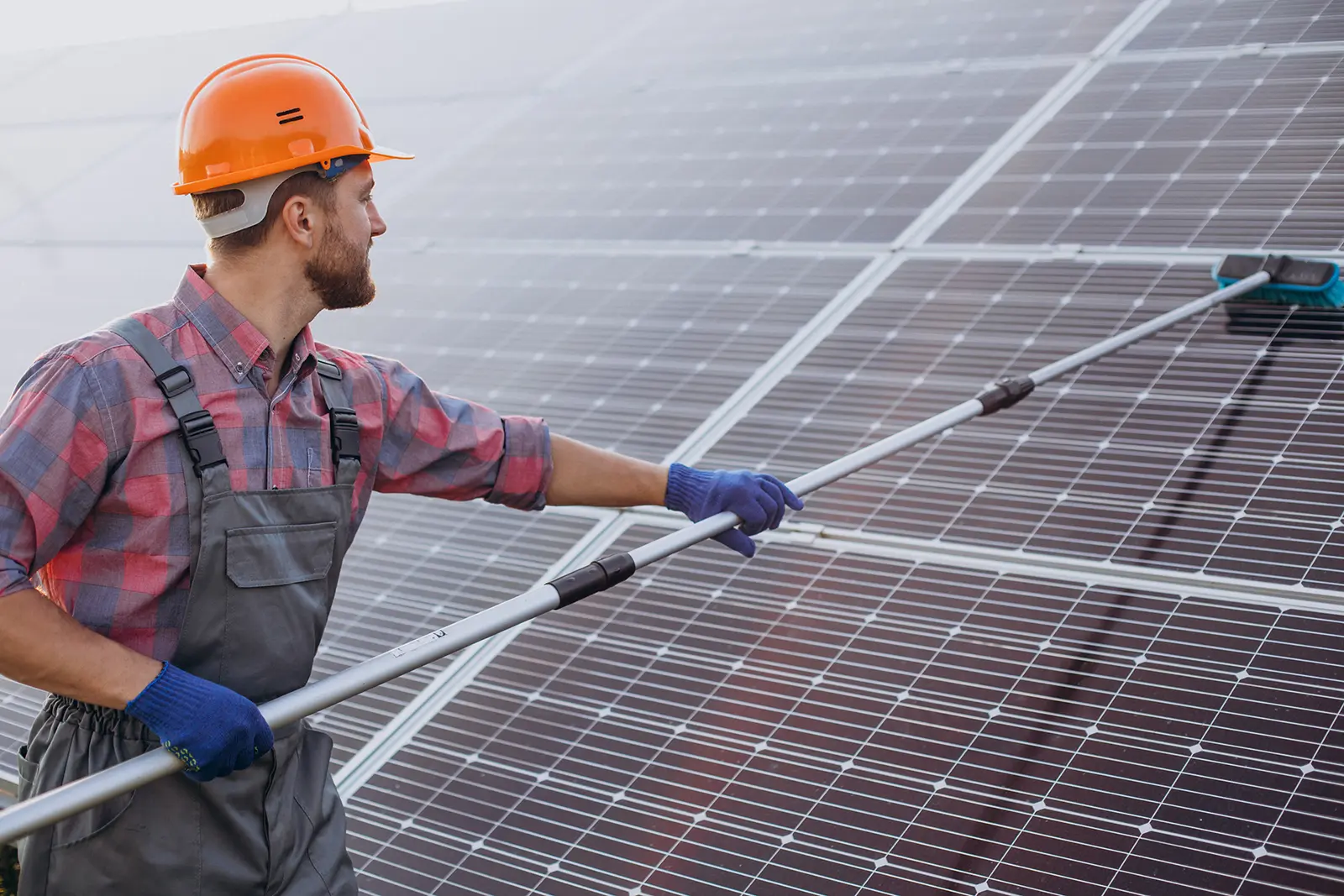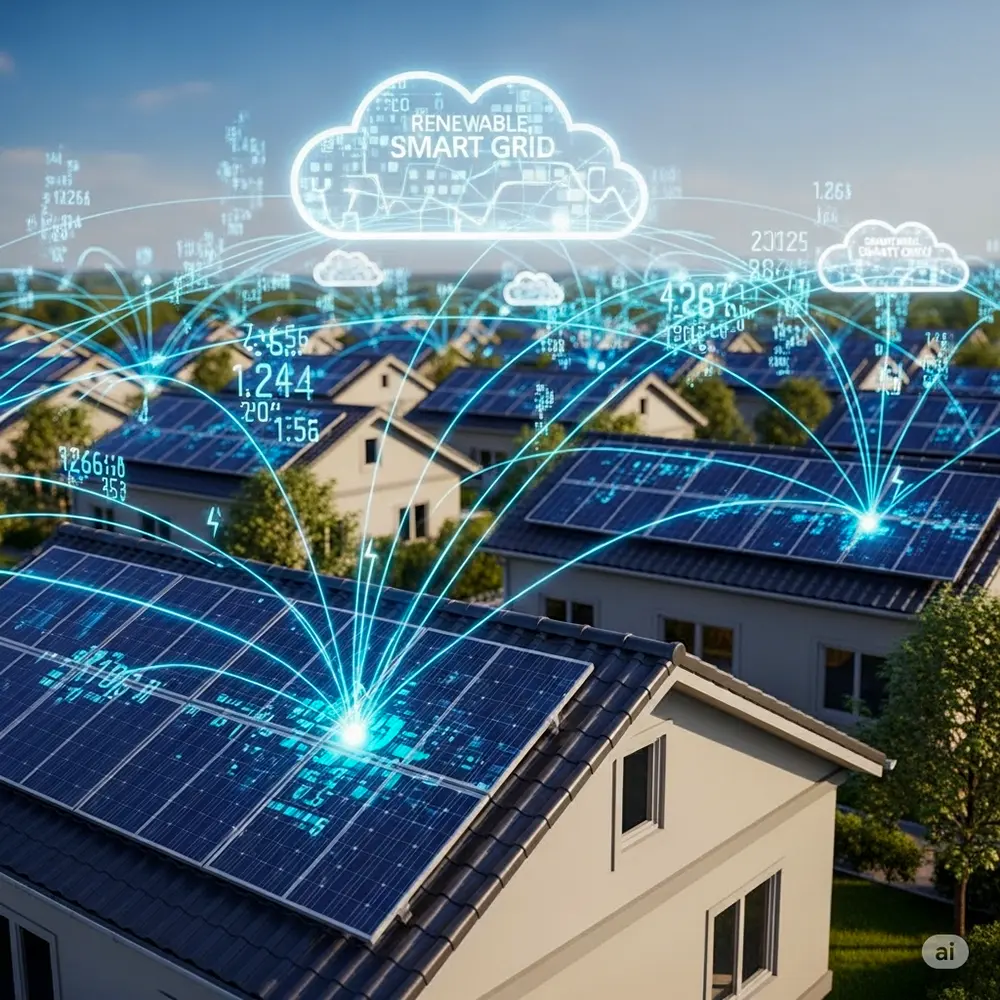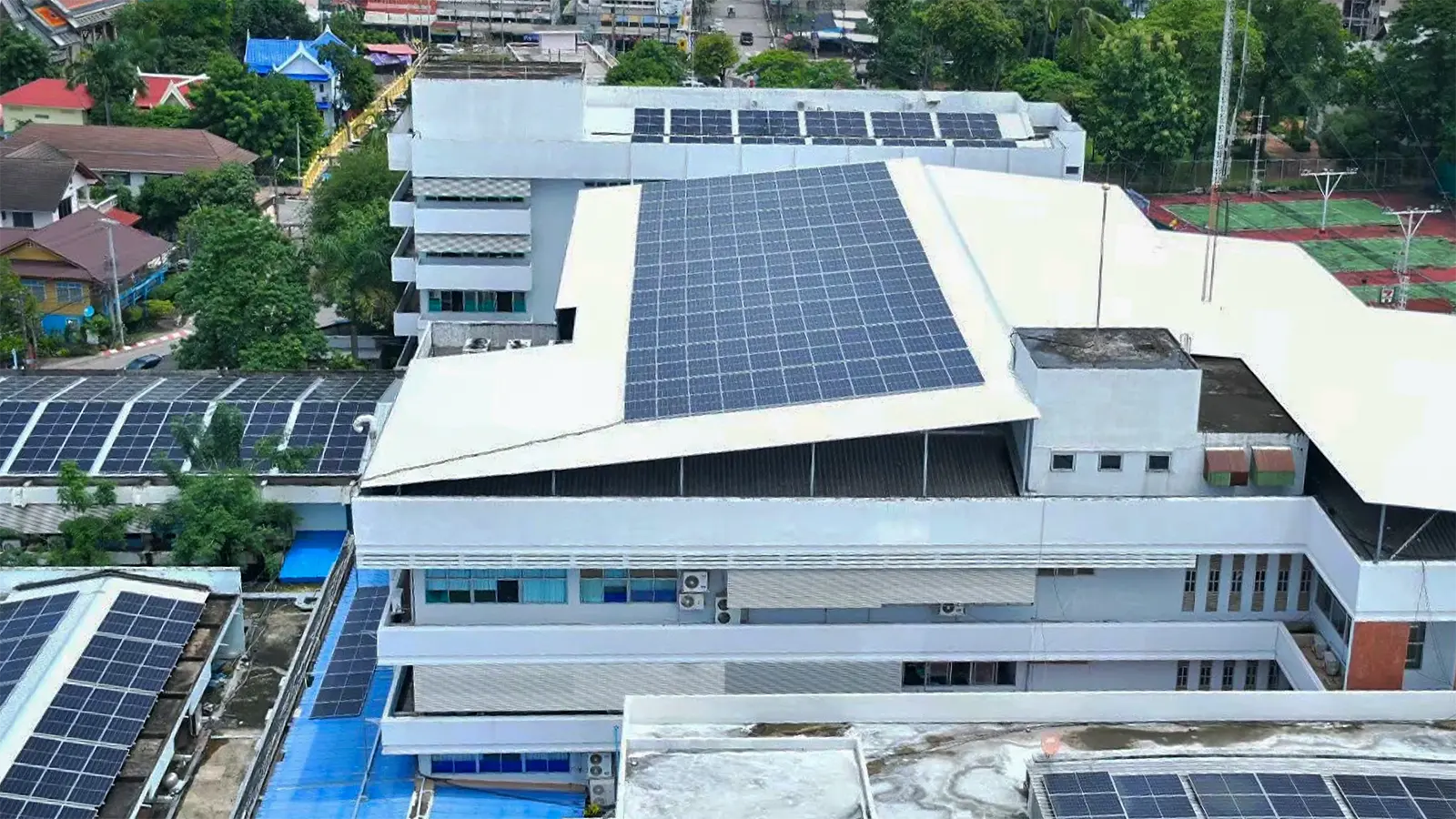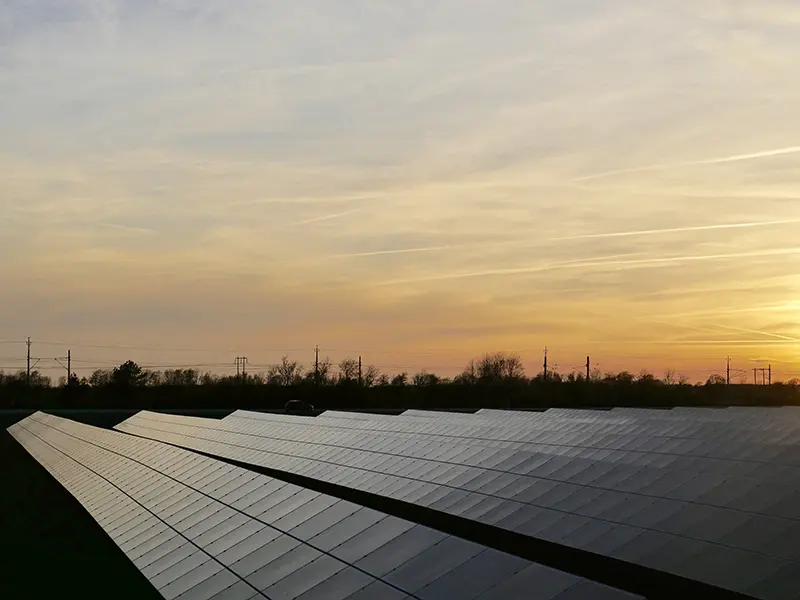News and activities
Maintaining your solar cell system yourself is easy!
28 May 2025

Your solar system will not only save you money on electricity bills, but it will also be environmentally friendly. To ensure that your system works efficiently and for a long time, doing basic maintenance on your own is an important thing that should not be overlooked. Don't worry! It's not as complicated as you think. Let's see what you can do.
1. Clean the solar panels: Dust and remove dirt.
– Why do we need to clean?
Solar panels that are dirty with dust, bird droppings or leaves will block sunlight, reducing their efficiency in generating electricity, similar to a cloudy mirror that does not allow enough light to pass through.
- how
- Inspect regularly: Look at your solar panels at least once a month, or more often if they're in a dusty area or have trees nearby.
- Use clean water: The easiest way is to gently spray the panels with clean water, similar to watering plants. This should be done in the early morning or evening when the panels are not too hot, to avoid temperature changes that could damage the panels.
- Microfiber cloth: If there are stubborn stains, use a soft microfiber cloth dampened with water to gently wipe. Do not use a hard brush or harsh chemicals as they may scratch the panel.
- Avoid direct high-pressure water spray: Excessive water pressure may damage the panel.
- Safety First: If your panels are in a hard-to-reach location or on a steep roof, call a professional to clean them for your own safety.
2. Check the wiring and connections: Look for abnormalities.
– Why do we need to check?
Loose, disconnected, or damaged wiring and connections may prevent the system from functioning properly or may be dangerous.
- how
- Visually: Inspect the wiring connecting the solar panels to the inverter, and from the inverter to the electric meter. Look for dangling, torn, or burned wires.
- Listen: Listen to the inverter area. If you hear any unusual noises, such as a loud humming sound, this could be a sign of a problem. Contact a professional for inspection.
- Check the status lights: Most inverters have status lights. If there are any warning lights or lights that you have never seen before, consult the user manual or contact your installer.
- CAUTION: Do not touch the power cord or electrical equipment directly if you are unsure or unskilled.
3. Take care of the inverter: the heart of the system
– Why do you need to take care?
Inverters are responsible for converting direct current (DC) electricity produced by solar panels into alternating current (AC) electricity that we use at home. If the inverter has a problem, the system will not be able to produce electricity.
- how
- Ventilation: Make sure that the area where the inverter is installed has good ventilation and that no objects are blocking the cooling vents.
- Clean the exterior: Use a dry cloth to wipe off any dust on the inverter.
- Check the status lights: Observe the inverter operating status lights according to the manual. If there is any abnormal signal, contact the installer.
4. Observe the system operation.
- Check the electric meter: Observe the rotation of the electric meter (for on-grid systems). If electricity is produced from solar cells, the meter will rotate more slowly, stop rotating, and may rotate in the opposite direction (depending on the meter type). If the meter is found to be rotating unusually fast during bright sunlight, there may be a problem with the system.
- View electricity production data (if available): Some solar systems have an app or web page that lets you check how much electricity they're generating on a daily, monthly basis. If production drops noticeably, it could be a sign that something is wrong.
Things to remember
This basic maintenance focuses on exterior care and observation. If you find any abnormalities that you are not sure about, do not try to fix it yourself. Contact an installer or solar cell specialist to check and fix it.
You should read your solar system user manual carefully to understand the specifics of your system and maintenance.
Preventive Maintenance is important. Regular maintenance of the system will help extend its lifespan and maintain its optimum efficiency.



